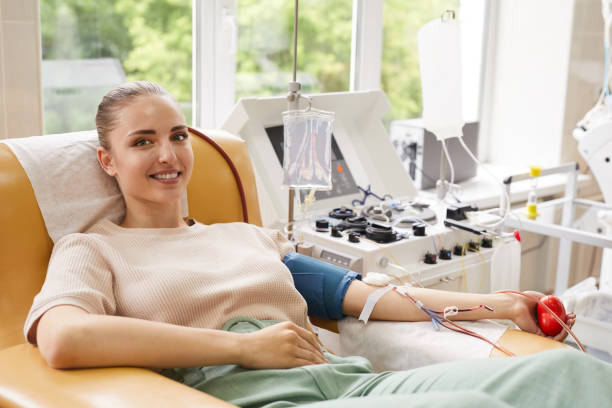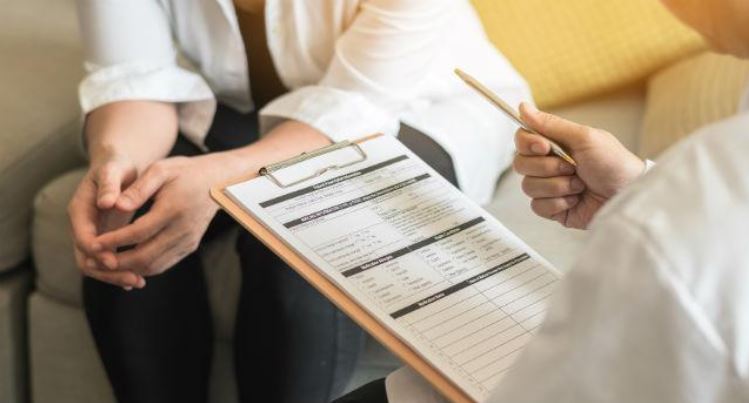
Blood draws, also known as venipunctures, are a standard procedure performed for various medical reasons. While most people tolerate them well, there are instances where individuals may feel dizzy, lightheaded, and even pass out during the process. Understanding why this happens and learning how to prevent it can make the experience smoother and less anxiety-inducing.
Understanding Blood Draws
A blood draw involves a healthcare professional inserting a thin needle into a vein, usually in the arm, to collect a sample of blood. This sample is then used for a wide range of diagnostic tests, including assessing blood cell counts, checking cholesterol levels, and monitoring various health conditions.
Why Do Some People Pass Out?
Passing out can be triggered by a “vasovagal” response, where the body reacts to stress by slowing the heart rate and dilating blood vessels, causing a drop in blood pressure. Anxiety, pain, and seeing blood are common triggers.
Factors Contributing to Fainting
Passing out during a blood draw can occur due to a combination of factors, which can vary from person to person. Some of the main contributing factors include:
The Vagal Response
The vagus nerve, a significant nerve in the body, plays a role in regulating heart rate, blood pressure, and other vital functions. During a blood draw, the sight of the needle or the sensation of the needle entering the skin can trigger a vagal response, leading to a sudden drop in heart rate and blood pressure, resulting in fainting.
Anxiety and Fear
Feeling anxious or fearful about the procedure is a common reason for fainting during blood draws. The brain’s response to stress can cause blood vessels to dilate, reducing blood pressure and potentially causing a person to faint.
Low Blood Sugar
Low blood sugar levels, also known as hypoglycemia, can contribute to fainting. If you haven’t eaten for an extended period before the blood draw, your blood sugar levels may drop, leading to dizziness and fainting.
Dehydration
Dehydration can make blood volume drop, leading to a decrease in blood pressure. When combined with the stress of the procedure, this can increase the likelihood of fainting.
Is it Normal to Pass Out When Getting Blood Drawn?
Fainting during blood draws is relatively common and is triggered by a variety of factors, including anxiety, pain sensitivity, and a sudden drop in blood pressure. While not everyone experiences it, it’s considered a normal physiological response.
What Does It Mean When Blood Stops Flowing During Blood Draw?
Temporary cessation of blood flow during a blood draw could result from a small clot forming or the needle being repositioned. This is generally not a cause for concern, and the healthcare provider will address it appropriately.
Where To Get Tested?
How to Prevent Fainting
To prevent fainting, stay well-hydrated, eat a balanced meal, practice relaxation techniques, and inform healthcare providers about your concerns. Engaging in conversation or bringing a friend for support can also help distract from the procedure.
Stay Hydrated and Eat Beforehand
Drinking water and having a light meal before your appointment can help stabilize blood pressure and blood sugar levels, reducing the risk of fainting.
Relaxation Techniques
Practice deep breathing, meditation, or other relaxation techniques to calm your nerves before the procedure.
Distraction Methods
Engage your mind with distractions like listening to music, watching videos, or engaging in conversation to take your focus away from the procedure.
Lying Down During the Procedure
If you’re prone to fainting, consider asking the healthcare provider if you can lie down during the blood draw. This can help maintain blood flow to the brain and reduce the risk of fainting.
What Should You Eat Before a Blood Test to Avoid Fainting?
Opt for a light meal rich in complex carbohydrates and protein before a blood test. Avoid heavy, fatty meals that can trigger digestive discomfort and lead to fainting.
What to Do If a Patient Faints?
If a patient faints, ensure their safety by gently laying them down, elevating their legs, and loosening tight clothing. If unconsciousness persists, seek medical attention promptly.
Say Goodbye To Waiting Rooms And Long Lines. Speedy Sticks offers at-home testing.
What If You Do Pass Out?
If you pass out during a blood draw, medical staff will attend to you. You’ll likely regain consciousness quickly. Allow yourself time to recover before resuming any activities.
Recovery Process
If you do pass out during a blood draw, healthcare professionals are well-equipped to handle the situation. You’ll likely regain consciousness within a few minutes. They may elevate your legs, provide you with water and snacks, and monitor your condition until you’re feeling better.
When to Seek Medical Attention

While fainting during a blood draw is generally not a cause for concern, there are instances where it might indicate an underlying health issue. If you consistently experience fainting or have additional symptoms such as chest pain, shortness of breath, or irregular heartbeats, it’s advisable to seek medical attention.
Conclusion
Passing out during a blood draw can be unsettling, but it’s important to remember that it’s usually a transient and manageable reaction. By staying hydrated, practicing relaxation techniques, and communicating with healthcare professionals about your concerns, you can make the experience more comfortable and less daunting.
Say Goodbye To Waiting Rooms And Long Lines. Speedy Sticks offers at-home testing.








